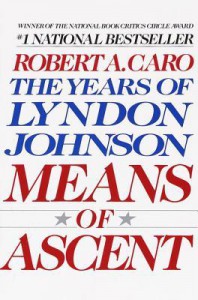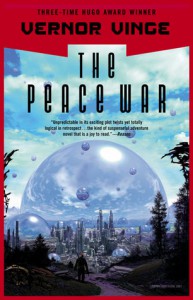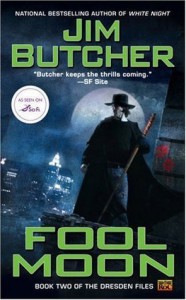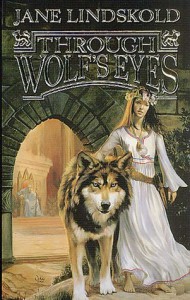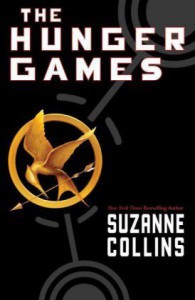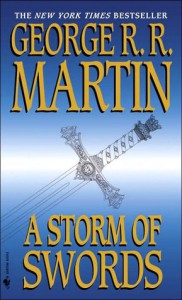Tor Books Goes DRM Free
Yesterday, Tor Books announced that they were going to go entirely DRM-free, by early July, 2012. This is huge news and I'm excited to hear it. "Everything is proceeding as I have foreseen."
Digital Rights Management (DRM) is the name for a software lock that publishers apply to movies and e-books that you've purchased. When something is "protected" by DRM, the publisher is protected from the risk that you'll copy it or use it in any way that they don't like.
DRM prohibits you from doing bad things, like distributing something to 1 million of your closest friends. It also prohibits you from doing good things, like copying your new DVD to your iPad or loading your Kindle e-book into your Barnes & Noble Nook.
It's worse than that though. It gives the publisher veto control over your devices—if you can't transfer your existing library to a new device, you'll be much less likely to buy it. With DRM, your e-books last only as long as the publisher does. If the publisher goes out of business (or leaves the market, as Wal-Mart did with digital music), you'll lose the ability to load your DRM files onto new devices. For the customer, there's absolutely nothing to like about a DRM lock.
With Tor's announcement, the e-book industry finally begins a move that I've been predicting for a couple of years now.
It's a move I've been predicting because of what I observed with digital music. In 2003, when the music publishers first made songs legally available through iTunes, they insisted that Apple wrap each track in a DRM lock. Their goal was to prevent widespread music piracy. Given the overwhelming popularity of the iPod, they succeeded in making Apple's store practically the only legal source of music for most customers.
For six years Apple gobbled up an increasing share of the music market. The music labels finally realized that their insistence on DRM was making them dangerously dependent on Apple. In January of 2009, the publishers agreed to let Apple—and other online retailers—sell music tracks without any DRM wrapper whatsoever.
For the first time, customers were able to legally buy digital music from Apple and play it on a non-Apple device. And, for the first time, Apple customers were able to legally buy digital music from Amazon and play it on their iPods. It took six years but the music labels finally realized that digital music without a DRM lock was better both for them and for their customers.
A similar situation has been playing out in the e-book market. Amazon was the first company to produce a mass-market e-book reader, introducing the Kindle in 2007. Publishers were slow to embrace the new platform but gradually began putting more of their catalog into Kindle format. As they released Kindle versions of each book, they insisted that Amazon wrap the e-books with a DRM lock.
The firs true competitor, the Nook from Barnes & Noble, wasn't introduced until 2009. At this point, digital music had already been DRM free for most of a year. E-books, however, were still DRM locked. As a result, Amazon was able to leverage their early start, large customer base, and solid hardware into a commanding market lead.
As Amazon grew, the publishers grew increasingly dependent on sales from Amazon. Each Kindle customer had a library that was locked to their Kindle device, through DRM. As long as those customers were locked to the Kindle hardware, they were also locked to the Kindle bookstore, making it hard to grow sales elsewhere. Amazon continued to grow Kindle and Kindle e-book sales, through aggressive pricing and discounting of e-books.
The publishers were aware of the trap that the music labels had fallen into with Apple. They were determined to avoid it but they were equally determined to ship e-books with DRM locks. The publishers decided to neuter some of Amazon's advantages by removing Amazon's ability to compete on price. In April, 2010 the publishers forced Amazon to purchase e-books through an "agency model". Amazon would no longer be free to price e-books as it saw fit. Instead, the publisher would set the price and Amazon would get to keep a flat 30% fee.
From now on, e-books would be priced at $7.99, $9.99, $12.99, $14.99, $16.99, or even $19.99, as the publisher dictated. These prices would apply identically across all stores (Apple iBooks, B&N; Nook, Amazon Kindle). The publishers hoped that by removing Amazon's price advantages, they could entice customers into other stores and prevent Amazon from gaining an effective monopoly over the e-book market.
It was an interesting tactic but one that I didn't expect to succeed, long term. Eventually one publisher would undercut another and the lock step pricing would fall apart. I continued to predict that publishers would eventually be forced to remove their DRM locks, if they wanted to have an open market with lots of sellers.
The agency model gambit hung together for 2 years and largely worked, until the publishers got sued. On April 12, the Department of Justice sued five publishers, under anti-trust law, alleging a conspiracy to fix prices. The DoJ sued HarperCollins, Simon & Schuster, Hachette, Macmillan, and Penguin. All but Macmillan and Penguin immediately settled and agreed to stop using the agency model.
Macmillan, one of the two holdouts, is the parent to Tor Books. Tor publishes science fiction books. These books are written and purchased by tech-savvy people. Both groups have been begging for DRM free e-books for years. Tor has wanted to oblige them, but Macmillan has always set the rules and Macmillan has always said no.
Yesterday, watching the agency model go down in flames, Macmillan apparently relented, and Tor announced that, by early July, their entire catalog would be available DRM free. They'll continue to sell e-books through Amazon and B&N; but those e-books will now be DRM free. In addition, Tor will look to expand their reach by selling through additional retailers. (Until now, those other retailers have been off-limits because they only sell DRM free e-books.)
This policy shift will open up new opportunities for Tor. Because I believe it signals the beginning of an industry wide shift, it will also open up new opportunities for customers as well. No longer will you be locked into one e-book reader or one e-book store. You'll have the freedom to buy e-books from any store and read them on any reader. You'll have the freedom to switch readers, without needing the publishers to approve of your new device. You'll have the freedom to loan the e-book to a friend, without that friend needing to use the same device as you.
I'm excited about the shift and I'm excited about what it means for the future growth of the e-book industry.
Now, when is the movie industry going to finally going to catch up and quit putting DRM locks all over their DVD and Blu-Ray discs? Are we going to have to wait another 3 years for that shift to occur? Or another 10?
